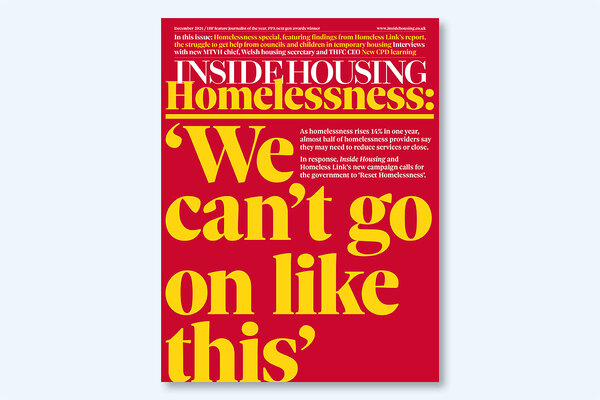You are viewing 1 of your 1 free articles
Government scraps compulsory Pay to Stay
The government has scrapped its plans to force councils to charge higher-income tenants rents of up to market rates.
In an unexpected and dramatic u-turn, housing minister Gavin Barwell announced the policy was being dropped in a Parliamentary statement today.
It follows the news, revealed exclusively by Inside Housing, that all future meetings of the Pay to Stay working group had been cancelled.
The policy was originally announced by then chancellor George Osborne in July last year, and would have seen social tenants earning over £30,000, or £40,000 in London, charged market rents.
But the government backed away from forcing the policy on housing association tenants in December, before facing strong opposition in the House of Lords.
This evening, Mr Barwell announced the policy would no longer be compulsory for councils.
He said: “We have listened carefully to the views of tenants, local authorities and others and as a result, we have decided not to proceed with a compulsory approach. Local authorities and housing associations will continue to have local discretion.
“The Government remains committed to delivering its objective of ensuring social housing is occupied by those who need it most. But we need to do so in a way that supports those ordinary working class families who can struggle to get by, and in a way which delivers real savings to the taxpayer. The policy as previously envisaged did not meet those aims.”
He added that the government would continue with its plans to enforce mandatory fixed term tenancies for council tenants.
He said: “This will better enable councils to give priority to people with the greatest housing need. Councils will review tenancies at the end of each fixed term to ensure that tenants still need a socially rented home. The government’s guidance to councils will make clear that they should take into account a household’s financial circumstances when looking at this.”
Labour’s shadow secretary of state for housing John Healey called on the government to follow up by reversing other policies, including the forced sale of council housing. “Having recognised this move was a big mistake, Ministers must now re-think the rest of their failed housing decisions over the last six years,” he said.
Lord Gary Porter, chair of the Local Government Association, added: “We have been working hard with the Government to make sure it was aware of the difficult, lengthy and costly process in seeking to implement the policy - which was likely to cause anxiety for families and be hugely unpopular with tenants.”
Pay to Stay has been a voluntary option for social landlords for many years, with few taking it up citing the logistical and administrative difficulties.
Gavin Barwell’s statement in full
Social housing has a crucial role to play in supporting those in most housing need. To that end, powers were provided for in the Housing and Planning Act 2016 to introduce an income based rents policy, requiring local authorities to set higher rents for higher income council tenants.
Since the summer, the Government has been reviewing this policy. We have listened carefully to the views of tenants, local authorities and others and as a result, we have decided not to proceed with a compulsory approach. Local authorities and housing associations will continue to have local discretion.
The Government remains committed to delivering its objective of ensuring social housing is occupied by those who need it most. But we need to do so in a way that supports those ordinary working class families who can struggle to get by, and in a way which delivers real savings to the taxpayer. The policy as previously envisaged did not meet those aims.
This is why we are introducing the mandatory use of fixed term tenancies for new tenants in local authority housing. This will better enable councils to give priority to people with the greatest housing need. Councils will review tenancies at the end of each fixed term to ensure that tenants still need a socially rented home. The Government’s guidance to councils will make clear that they should take into account a household’s financial circumstances when looking at this, and that, except in exceptional circumstances, tenancies should be targeted on those on lower incomes.
We will also consider whether other options exist to ensure that high income tenants in social housing make a greater contribution to costs.
We are keen to work with local authorities to tackle housing tenancy fraud. In 2013, the National Fraud Authority estimated the cost of such fraud – largely illegal sub-letting and lying about circumstances to obtain tenancies – to be in the region of £850 million a year.
For most existing tenants, social housing represents a home for life at a rent well below market levels. The Government remains committed to ensuring it goes to those who need it most.
We have already announced for this spending period we are putting £8 billion into affordable housing delivery. Building more homes is central to this Government’s vision of a country that works for everyone. We will publish a Housing White Paper shortly, setting out measures to help us deliver this ambition.












